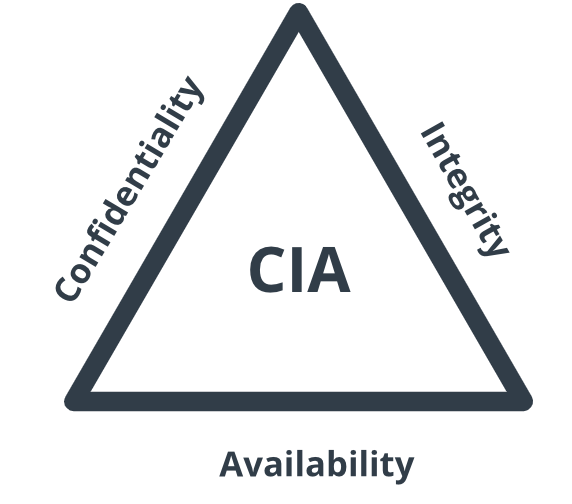13. Security Principles
Security Principles
ND545 C1 L1 09 Security Principles
ND545 C1 L1 10 Security Principles Part 2

The security CIA
Security Principles
This video explains a set of security principles that are the framework for all security programs. These basic ideas are not specific to cybersecurity or IT and are used to structure how we protect our technologies.
Saltzer and Schroeder’s Design Principles published in their paper “The Protection of Information in Computer Systems” in 1975:
- Economy of mechanism
- Fail-safe defaults
- Complete mediation
- Open design
- Separation of privilege
- Least privilege
- Least common mechanism
- User-friendly interface
(Source: http://web.mit.edu/Saltzer/www/publications/protection/index.html)
Economy of Mechanism means to keep things small and simple.
- Bigger is not better. It just means there’s more to protect. And complexity is an enemy of security.
- Complex systems are harder to defend because you need to understand all of the ways to access it and how processes can be broken to allow unauthorized activities.
To fail safe means to anticipate how things can go wrong and to ensure when it does, things are in a safe state. This safe state should be the default, not an exception. To do this, you need to know how something may fail and plan for that failure, which is failing smart.
Least Privilege is a concept dealing with Access Control. It means having the minimum privileges or permissions needed to do a job. Nothing more, nothing less. Too much and you could be blamed if there are problems.
For choke points and defense in depth
- Choke Point - only one way in or out
- Defense in Depth - layers of security
The CIA of security is Confidentiality, Integrity, and Availability.
Security Principles
QUIZ QUESTION::
Match the example with the security concept.
ANSWER CHOICES:
|
Security Principle |
Example |
|---|---|
Economy of Mechanism |
|
Fail Safe |
|
Least Privilege |
|
Chokepoint |
|
Confidentiality |
SOLUTION:
|
Security Principle |
Example |
|---|---|
|
Chokepoint |
|
|
Confidentiality |
|
|
Fail Safe |
|
|
Economy of Mechanism |
|
|
Least Privilege |